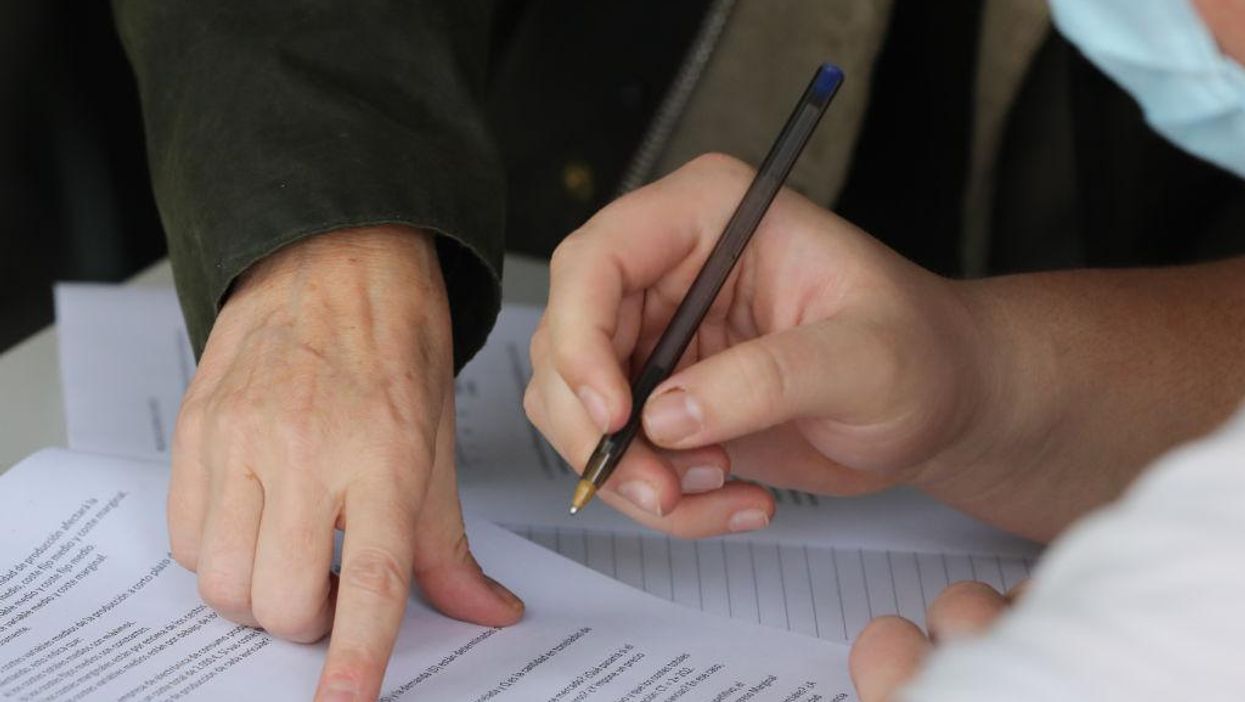
Marta Fernandez Jara/Europa Press via Getty Images

An English professor at the University of Richmond claimed recently that she has abandoned the practice of grading her students work as an exercise in social and racial equity.
In an op-ed for the Conversation published Wednesday, Dr. Elisabeth Gruner said she stopped grading written assignments four years ago — and her only regret is that she didn't start sooner. Apparently, the longstanding practice has become an outdated method of educational assessment, since it doesn't serve the student.
Grading, Gruner argued, is "highly inequitable," "demotivating," and ultimately serves only to "increase students' stress." Nevermind the litany of reasons educators have opted to grade students for centuries.
Now the professor uses a practice called "ungrading" to assess her students' educational performance. In the op-ed, she listed off three reasons for doing so.
One reason was that she wanted her students to focus on the feedback that she provided on their written assignments and claimed that "removing the grade forced students to pay attention to my comments." Another was that she selfishly "hates grading" and desired to be free "from the tyranny of determining a grade."
But Gruner offered a third reason for adopting "ungrading" as her method: "I was concerned with equity," she said. This appeared to be her primary motivation.
"For almost 10 years I have been studying inclusive pedagogy, which focuses on ensuring that all students have the resources they need to learn," Gruner claimed, adding that her studies "confirmed [her] sense that sometimes what [she] was really grading was a student’s background."
"Students with educational privilege came into my classroom already prepared to write A or B papers, while others often had not had the instruction that would enable them to do so," she explained. "The 14 weeks they spent in my class could not make up for the years of educational privilege their peers had enjoyed."
Of course, Gruner acknowledged that she does ultimately have to determine and assign her students with grades at the end of the semester, as required by university rules.
To comply, Gruner refuses to grade individual assignments during the semester but offers feedback and ample opportunity to revise work. Then, at the end of the semester, students submit their full portfolio of work for a final assessment.
She also suggested that if one needs to grade, they should at least use the pass/fail method — which avoids letter or number grades but rather assesses whether or not a student "passes" or "fails" the class. The method was temporarily adopted by many educators and institutions during the COVID-19 pandemic.
Gruner celebrated the use of pass/fail as a way to reduce stress and address the pandemic's disproportionate affect on students of color. But she lamented how many "later resumed grading, not acknowledging the ways that traditional assessments can both perpetuate inequity and impede learning."
Gruner's perspective is likely to appreciated by many students. One allegedly thanked her for treating him and fellow classmates "like adults." But it remains to be seen if her patently less rigorous method produces more capable graduates.